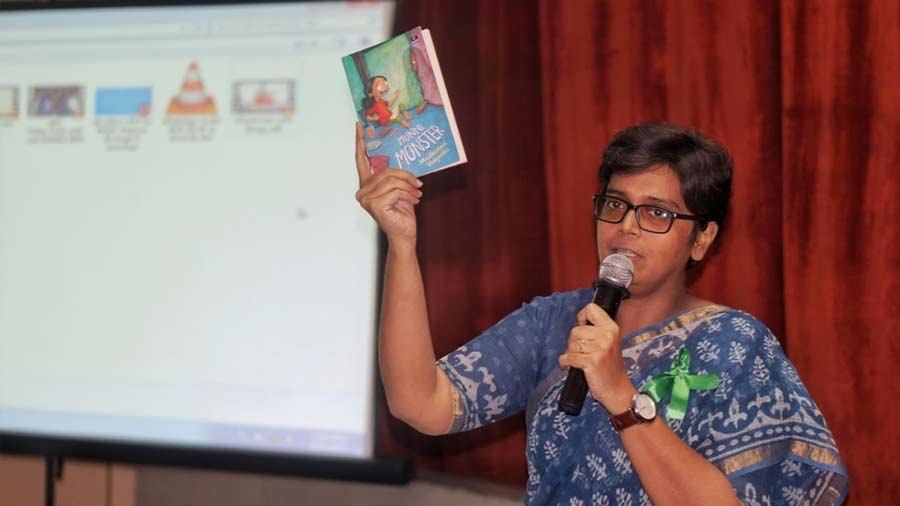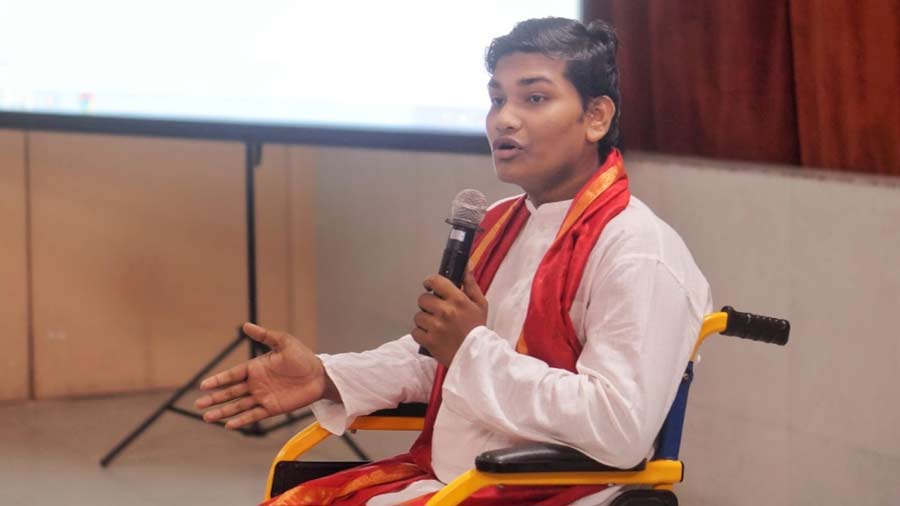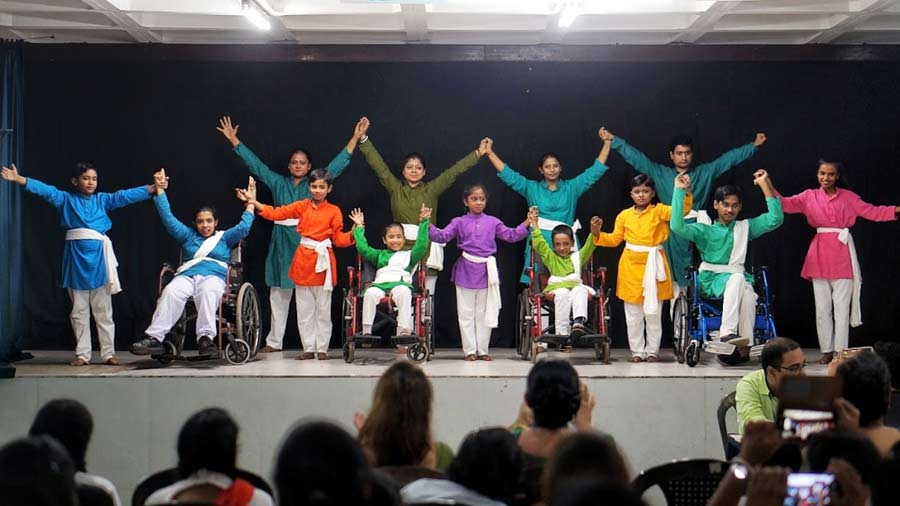The celebration began with a performance by the IICP band. They enthralled the audience with songs like Aaj Jibon Khunje Pabi and Aashayein. This was followed by the screening of a film tracing the history and development of the institute.
Md Aryan, a student of the institute, presented a film on Augmentative and Alternative Communicative (AAC) devices and how they are changing the lives of people with cerebral palsy. At the IICP, students receive instruction from Augmented and Alternative Communication (AAC) experts to learn the diverse ways of utilising AAC devices for self-expression. The film showcased the utilisation of an array of AAC tools, including the voice output device Kathamala, the spell board which can be used to spell words, electronic gadgets such as tablets, and the Akashvani software.
Students from different schools such as Bidya Bharati School, West Barisha Kamala Vidyamandir, and South Point School performed as a part of the celebration. The students of West Barisha Kamala Vidyamandir (in picture) put up a dance performance as well as a yoga display.
The students and staff of IICP also put up a vibrant dance performance to the song Chale Chalo from Aamir Khan-starrer Lagaan. Sudipendu Dutta, IT and advocacy trainer and the coordinator of Ankur Advocacy Group (AAG), Indian Institute of Cerebral Palsy said, “We celebrate World Cerebral Palsy Day to create awareness of disability rights. We want a society without discrimination where everyone can live their lives with dignity. We also want to highlight that disability rights are human rights. We can only hope for an equal society when people’s perspectives change.”

Madhurima Vidyarthi was one of the chief guests at the event
Madhurima Vidyarthi, who was one of the chief guests at the event, spoke about her book Munni Monster. The story revolves around the relationship between Mishti, the young protagonist, and a grandmother with cerebral palsy called Munni. She read out portions from her book and also pointed out that three out of a thousand children in India have cerebral palsy. “We should not just open our hearts but also our minds,” the doctor-turned-author said.
“The day we change our perspective, we will truly understand the meaning of inclusive education. The students here are far more imaginative than us. We need to believe that nobody is different than us,” said Shanta Choudhury, principal of West Barisha Kamala Vidyamandir

Deep Dolui was a part of the IICP band
Deep Dolui, who was a part of the IICP band, said that he gets to perform at various places with his team. “I like the fact that we get to work with everyone inclusively. We want to let people know that disability isn’t a hindrance and that we want to live with dignity in society,” he concluded.
